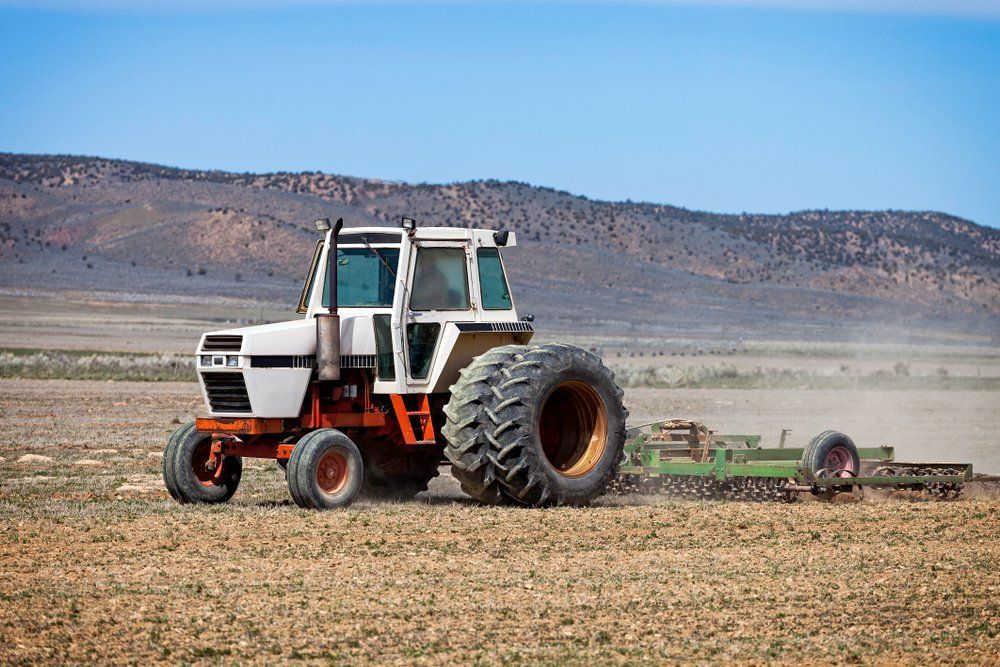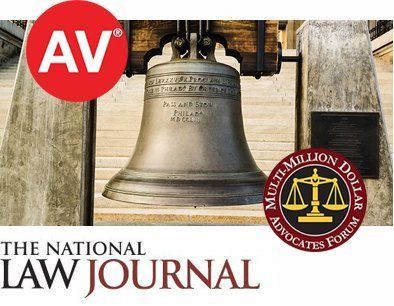Tractor Roll-over Cases
During a recent investigation, the Star Tribune found that over 1,700 farm workers across the United States were killed by tractor accidents between the years 2003 to 2013. Many of those accidents were caused by tractor rollovers. According to the National Institute for Occupational Safety and Health (NIOSH), despite the many dangers facing modern farmers, tractor rollovers are the leading cause of death for farm workers.
The World Bank estimates there are over 4.6 million tractors currently in operation across the United States. With over 59,000 farms spread out across the Commonwealth of Pennsylvania, according to the most recent statistics by the National Agricultural Statistics Service, it is important our farmers and farm workers understand the dangers posed by tractors.
Why Do Tractor Roll-overs Occur?
While there are many types of accidents that can occur when using a tractor, such as tractor runovers, tractor collisions, and tractor entanglements, more than half of all tractor accidents are tractor roll-overs. There are many types of tractors, but all of them share several qualities that make them much more likely to tip over than other kinds of industrial equipment:
- Tractors are “Top-Heavy”: Tractors are designed to have a high center of gravity compared to vehicles like cars or pickup trucks. This makes them “top-heavy” and more prone to tip over while the operator is driving the tractor. This is especially true when driving the tractor on an incline or on uneven ground.
- Many Tractors are Rear-Balanced: Many tractors, especially two-wheel tractors, have more than two-thirds of their weight in the back of the tractor. Occasionally, the rear wheels of the tractor get stuck. When this happens, even though the wheels cannot turn, the rear axle will turn and lift the front of the tractor into the air. Because of the large amount of weight in the rear, it only takes a second for the tractor to flip backwards after the front wheels leave the ground.
- Tractors Can Travel Fast: Tractors are typically able to travel up to 20-mph to 25-mph, but some models can reach speeds of up to 80-mph. Traveling at high speeds can put the driver in several situations that increase the risk of a roll-over accident. Traveling too fast, especially on rough terrain, can cause the tractor to bounce, causing the operator to lose control over the steering wheel and causing the tractor to roll-over either sideways or backwards. Traveling too quickly while carrying or moving heavy loads on the tractor can cause the tractor to fishtail, which also increases the risk of a roll-over. Finally, traveling at high speeds makes it harder to stop the tractor, especially when going downhill. Braking too hard while coming down a hill can cause the tractor to tip over.
What Can Be Done To Prevent Injury During a Tractor Roll-over Accident?
Many of the qualities that make tractors so prone to roll-overs are unavoidable. However, several safety features have been developed to protect tractor operators in the case of a roll-over accident. The most effective are:
- Roll-over Protection Structures: The term Roll-over Protection Structures, often referred to as ROP’s, includes a series of structures meant to absorb some of the impact from the roll-over and keep the tractor operator from being crushed or tossed from the tractor. The most common are roll bars and roll cages. Unfortunately, according to some estimates, more than half of all tractors do not have an ROPS. This is true despite the National Institute for Occupational Safety and Health estimates that indicate almost all tractor roll-over fatalities could be prevented if all tractors were outfitted with an ROPS.
- Seatbelts: According to the National Institute for Occupational Safety and Health, when used in combination with an ROPS, seat belts have been shown to be 99% effective at preventing death and catastrophic injuries during a roll-over accident. Like ROPS, many tractors across the US are not equipped with seatbelts.
Unfortunately, many companies do not include the most effective safety gear on their tractors. Some may not have included an ROPS or seat belts at all. Others may have included an ROPS but failed to give proper warnings about its limitations. This frequently occurs with adjustable ROPS such as adjustable roll bars. For example, Sometimes the roll bars can get in the way, especially if the tractor has to be used in area with low clearances, such as farm building and apple orchards. If the roll bar is not adjusted properly, it may be completely ineffective.
What Should I Do If I Have Involved In a Tractor Roll-over Accident?
Sometimes, no matter how vigilant you have been, a roll-over accident cannot be avoided. If you have been involved in a roll-over accident, you need to contact an experienced attorney. DO NOT DELAY! There is a Statute of Limitations in Pennsylvania requiring that any tractor roll-over accident lawsuit be started within two years of the date of the accident which has caused your injuries. If you do not bring a lawsuit within the applicable two-year period, any claim that you may have will be forever barred.
Tractor roll-over accidents are also more complicated than other kinds of accidents. First, your right to sue may be limited by the Pennsylvania Workers’ Compensation Act if you were on the job at the time you were injured. Even if you are not allowed to sue your employer, however, you may have a products liability claim against the manufacturer of the forklift for manufacturing defects, design defects, inadequatewarnings and other products liability claims. These cases are extremely complicated and are often heavily litigated. You need an experienced attorney to review the facts of your case to determine what kinds of claims you may make and identify the individuals and entities against which you can bring your claims. Your attorney also needs to have the resources and the perseverance to bring your case all the way to trial if necessary.
There are also other complexities involved in tractor roll-over cases you cannot ignore. There may be several different individuals and entities responsible for the tractor roll-over, as several different companies may have had responsibility for the design and manufacture of the tractor that caused your injuries. Additionally, tractors are typically governed by special federal and state laws and regulations which do not apply to other accidents. You need an attorney who has the experience and resources to fully investigate the accident and identify all the applicable laws and regulations.
At the Law Office of Alvin F. de Levie, Esq., our team has years of experience handling cases for those who have suffered catastrophic injuries. We have handled cases from Philadelphia and the surrounding counties to Allegheny County, including Blair County, Centre County, Lycoming County, Montour County, Mifflin County, Cambria County, Cumberland County and Dauphin County. If you have suffered a catastrophic injury, please feel free to contact usor call our firm – 24 hours a day, 7 days a week – at 844-777-2529 (Toll Free) for a consultation.
One of our team members will be in immediate contact with you and all conversations are kept completely confidential. We maintain offices throughout Pennsylvania in Philadelphia, State College, Bellefonte and Lock Haven, and we are willing to meet any clients throughout the Commonwealth.
As mentioned in the testimonials on our site, we are always available for our clients, whether in person, over the phone, via text or via email. We travel throughout Pennsylvania and we make it a priority to answer our clients' questions and to keep them informed of important developments in their cases.






























